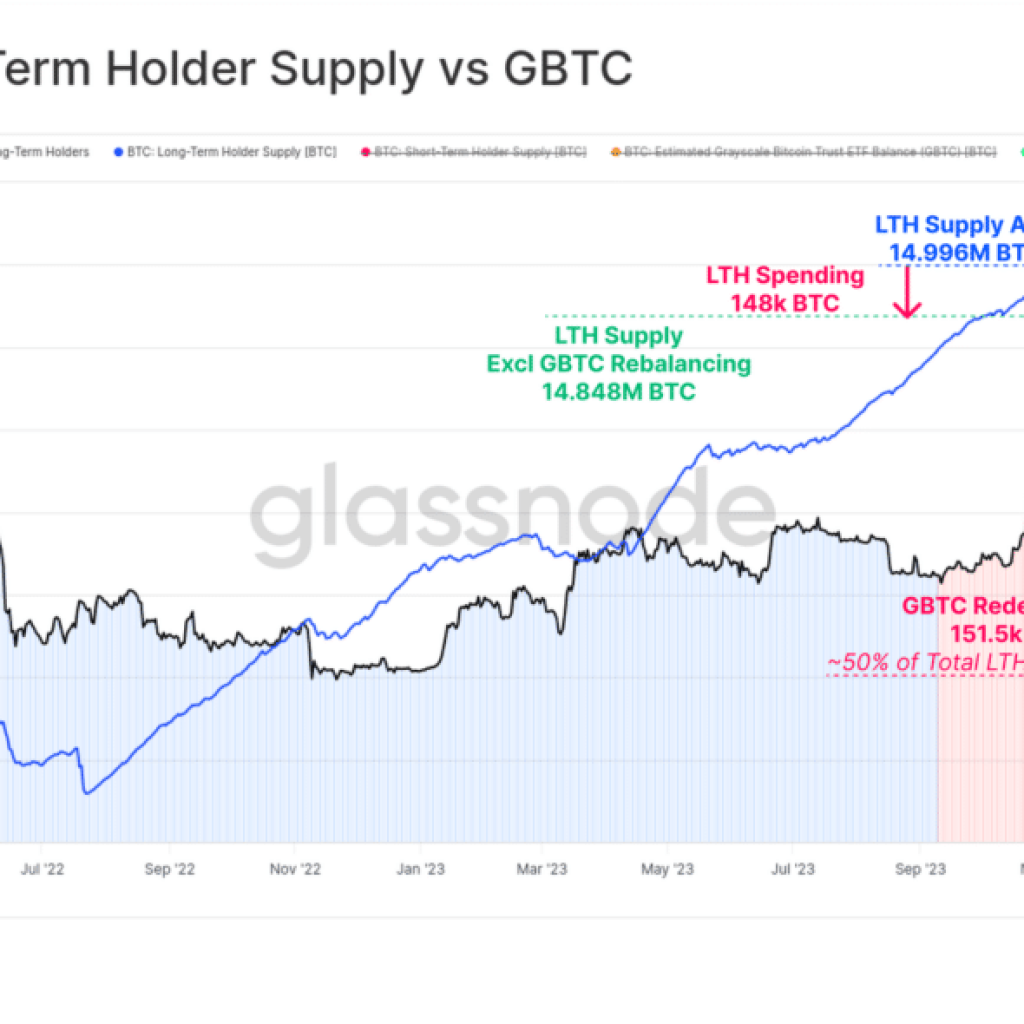
A bullish weekly close sees Bitcoin tackle realized price while analysts speculate on major volatility in the coming days.
Bitcoin (BTC) starts a pivotal week on a firm footing as bulls succeed in wiping out weeks of losses.
After closing the latest weekly candle at $21,800, its highest since mid-August, BTC/USD is back on the radar as a long bet.
The end to an extended period of downside interspersed with sideways price action now appears firmly at an end, with volatility expected to form a major theme in the coming days.
In fact, few weeks in Bitcoin’s history have been as hectic as this one is likely to be.
In addition to the Ethereum (ETH) Merge on Sep. 15, the United States inflation trend will come under scrutiny on Sep. 13 with the release of August Consumer Price Index (CPI) data. The recipe for unpredictability is there.
How will Bitcoin weather the storm? While the macro picture looks muddy for risk assets as the U.S. dollar surges, on-chain data continues to point to a price bottom already in the making.
In addition, Bitcoin’s network fundamentals are poised to hit new all-time highs this week, underscoring miner resilience and recovery, along with conviction over profitability.
Cointelegraph takes a look at several of the main areas to watch as Bitcoin gives “Septembear” a run for its money.
Solid weekly close boosts short-term BTC bets
The latest weekly close provided some much-needed relief for Bitcoin bulls.
After weeks of miserable performance, BTC/USD finally managed to seal a convincing week’s gains, even avoiding a last-minute correction into the candle close, data from Cointelegraph Markets Pro and TradingView shows.

As such, at just above $21,800, the Sep. 11 event formed a solid foundation for a week due to deliver considerable volatility.
At the time of writing, that level is forming a consolidation zone, coinciding with an important trendline in the form of Bitcoin’s realized price. According to on-chain analytics firm Glassnode, this currently sits at approximately $21,770.

BTC/USD has yet to tackle more significant bear market levels lost as support last month, chief among them the 200-week moving average, which is now near $23,330.
A spike to $22,350 on Bitstamp overnight nonetheless caught traders’ attention, furthering existing calls for upside to continue.
“This just was preliminary supply at 22300,” popular Twitter account Il Capo of Crypto wrote in one of several recent updates.
“Still thinking 23k is likely. Then we see reversal.”
A further tweet nonetheless cautioned that “major resistances” are now coming into play across Bitcoin and altcoins.
“In my opinion, we see a last leg up of 5-7% soon, then ltf distribution, then nuke. Get ready,” it stated.
In a sign of the coming volatility beginning, fellow trader Cheds noted that Bitcoin tagged its upper Bollinger Band on daily timeframes, the bands now slowly spreading to make way for a wider trading range.

Inbound CPI combines with dollar nosedive
One of the two main talking points for the week in BTC price action comes from a familiar source: the United States Federal Reserve.
CPI data is due for August, and hopes are resting on the decreasing inflation trend continuing after July’s print showed a peak having formed.
Massive week coming up;
— Michaël van de Poppe (@CryptoMichNL) September 12, 2022
- CPI Data, which will most likely give a direction towards the FED.
- $ETH merge is approaching, which is one of the biggest events in blockchain in the past years.
- Climax on strength of the $DXY potentially approaching.
Fire.
Should that be the case, it will be a boon for risk assets suffering heavily at the hands of a surging U.S. dollar.
According to CME Group’s FedWatch Tool, the Fed’s Federal Open Markets Committee is nonetheless likely to put in a repeat 75-basis-point interest rate hike at its September meeting next week.

For dollar watchers, however, there is already reason to believe that the risk asset comeback should cement itself in the coming days.
The U.S. dollar index (DXY), fresh from twenty-year highs, has fallen nearly 2.7% in just four days.
My calculator cannot count the number of negative comments I received after tweeting the $DXY Sell Signal. https://t.co/ENGqkgkb1v pic.twitter.com/r4VlfIVvSR
— Trader_J (@Trader_Jibon) September 12, 2022
“One thing which makes me doubt my downside bias for Bitcoin & Crypto in general post the ETH merge even, is DXY,” analyst Mark Cullen, creator of trading resource AlphaBTC, revealed.
“We see potential for 3 drives of [bear] divergence formed on the RSI & the Sept FOMC is next Wed. I wonder if we see $DXY break the parabola & push risk assets up.”
Phoenix Copper executive Donald Pond meanwhile called the USD and DXY chart “the most important out there.”
“The dollar is far too strong atm, and has been killing everything else,” he tweeted on the day.
“It's dropped quickly over last few days, but is still in a strong uptrend. No sustainable bounce for markets until trend breaks.”

The Merge is here!
Complementing the encouraging inflation data is a purely internal price trigger — the Ethereum Merge, due around Sep. 15.
The event, now set to become reality after months of uncertainty, sees Ethereum as a network transition from Proof-of-Work (PoW) to Proof-of-Stake (PoS) as its hashing algorithm.
Hype has been building on social media and beyond, and now, analysts are wondering what the immediate aftermath will be — specifically, whether investors will “sell the news” and bring markets lower immediately once the Merge completes.
Huge week for the #Ethereum and #Crypto community with the upcoming Merge
— Crypto Tony (@CryptoTony__) September 12, 2022
These events tend to create more liquidity, which can be used to the whales advantage via engineering certain moves and looks
Do not rush into positions if your not already in one ‼️
everyone larping about if they should long the merge or short the merge
— Udi Wertheimer (@udiWertheimer) September 12, 2022
feels like one of these games where the best move is not to play
In a dedicated update released on Sep. 10, trading platform Decentrader stressed the need for caution and avoidance of an “up-only” mindset.
“It is important to remember that there are multiple potential headwinds that could turn things in favour of the bears, namely bugs in the Merge code, a significant proportion of the Ethereum network moving to a fork taking market value with it, as well as Macro headwinds from the US August CPI data next week,” it wrote.
“It’s also important to remember that overall, there remains macro and geopolitical systematic risk which might halt the most bullish narrative for ETH. Lets see if price can hold, post merge.”
Decentrader drew comparisons to the hard forks of Bitcoin, which occurred in the second half of 2017 and later. Now, as then, the risk of distraction remains.
“Long term, the Merge has fundamental changes which we are interpreting as being bullish for Ethereum, but the actual event will undoubtedly prove to be volatile as the market wrestles between narratives,” the update concluded.
“Be extremely wary of scams, fork tokens etc, we have already seen multiple around the Merge and ETHPoW forks.”
ETH/USD trended down for a second straight day at the time of writing, eyeing $1,760 after hitting local highs of $1,790.

Difficulty, hash rate tackle all-time highs
Bitcoin’s network fundamentals have been anything but bearish lately, and this week, that trend continues to new heights.
Both Bitcoin’s mining difficulty and hash rate have either hit or are due to hit new all-time highs in the coming 48 hours as of Sep. 12.
According to estimates from monitoring resource BTC.com, difficulty will increase by 3% at the next automated readjustment, sending it further into unknown territory with a total of 31.91 trillion.
That follows the previous jumbo readjustment of 9.26% two weeks ago, this forming the largest increase since 2021 as well as acting as a firm signal that miner competition is healthier than ever.

Indeed, since their latest “capitulation” phase ended last month, as per on-chain data, miners have been racing to add hashing power to their operations. This is exemplified by hash rate — the estimated combined hashing power of the Bitcoin network — itself spiking to levels never seen before in recent days.
According to MiningPoolStats, that spike came on Sep. 5 and involved a brief trip to 298 exahashes per second (EH/s). Hash rate currently hovers at just under 250 EH/s.
Reacting, analytics platform TheTIE meanwhile noted that the increase in hash rate had moved the timing for the next Bitcoin block subsidy halving event forward.
“As Bitcoin Hashrate rises up to all time highs, there's an important second order effect to remember: The Halving. Before this, it was expected for 2024, but now the projected date for the next $BTC halving has been moved to Q4'23,” it commented alongside a hash rate chart.
Extreme fear proves sticky
As bullish as the data and analysis seems to be, the overall crypto market still can’t quite shake the sense of foreboding.
Related: Crypto traders eye ATOM, APE, CHZ and QNT as Bitcoin flashes bottom signs
The Crypto Fear & Greed Index, after a brief escape higher, is back in “extreme fear” as of Sep. 12 in a sign that a definitive change of trend has yet to enter.

“Extreme fear” is where the Index has spent much of 2022, including its longest-ever consecutive stint lasting over two months.
For Santiment, a platform dedicated to analysis of crypto sentiment, there was reason to be cautious thanks to the profit-taking activity on both Bitcoin and Ethereum.
“Bitcoin has climbed back above $22k today for the first time in over 3 weeks,” it summarized.
“$BTC's ratio of transactions in profit vs. loss is at its highest since March, and it appears that many have viewed this mild bounce as the trigger to trade again.”

The views and opinions expressed here are solely those of the author and do not necessarily reflect the views of Cointelegraph.com. Every investment and trading move involves risk, you should conduct your own research when making a decision.





